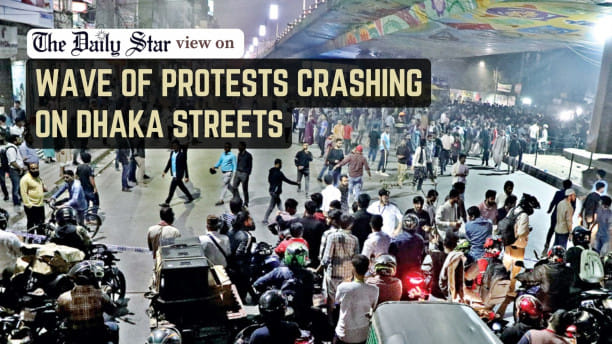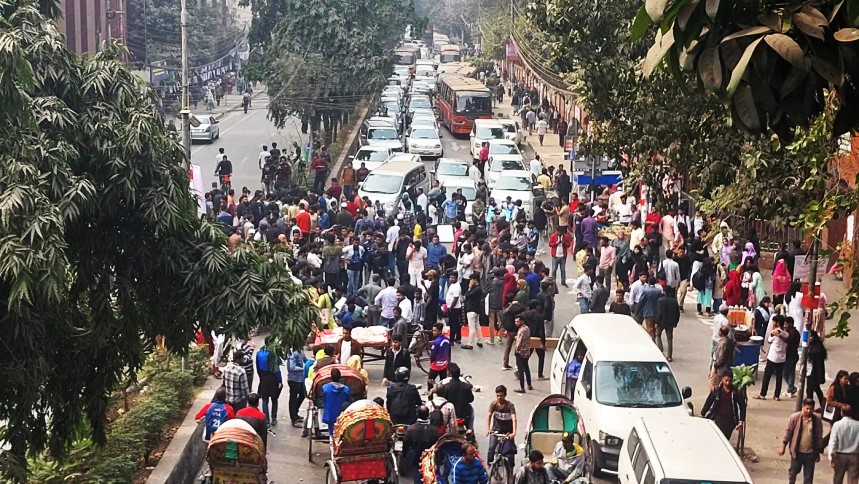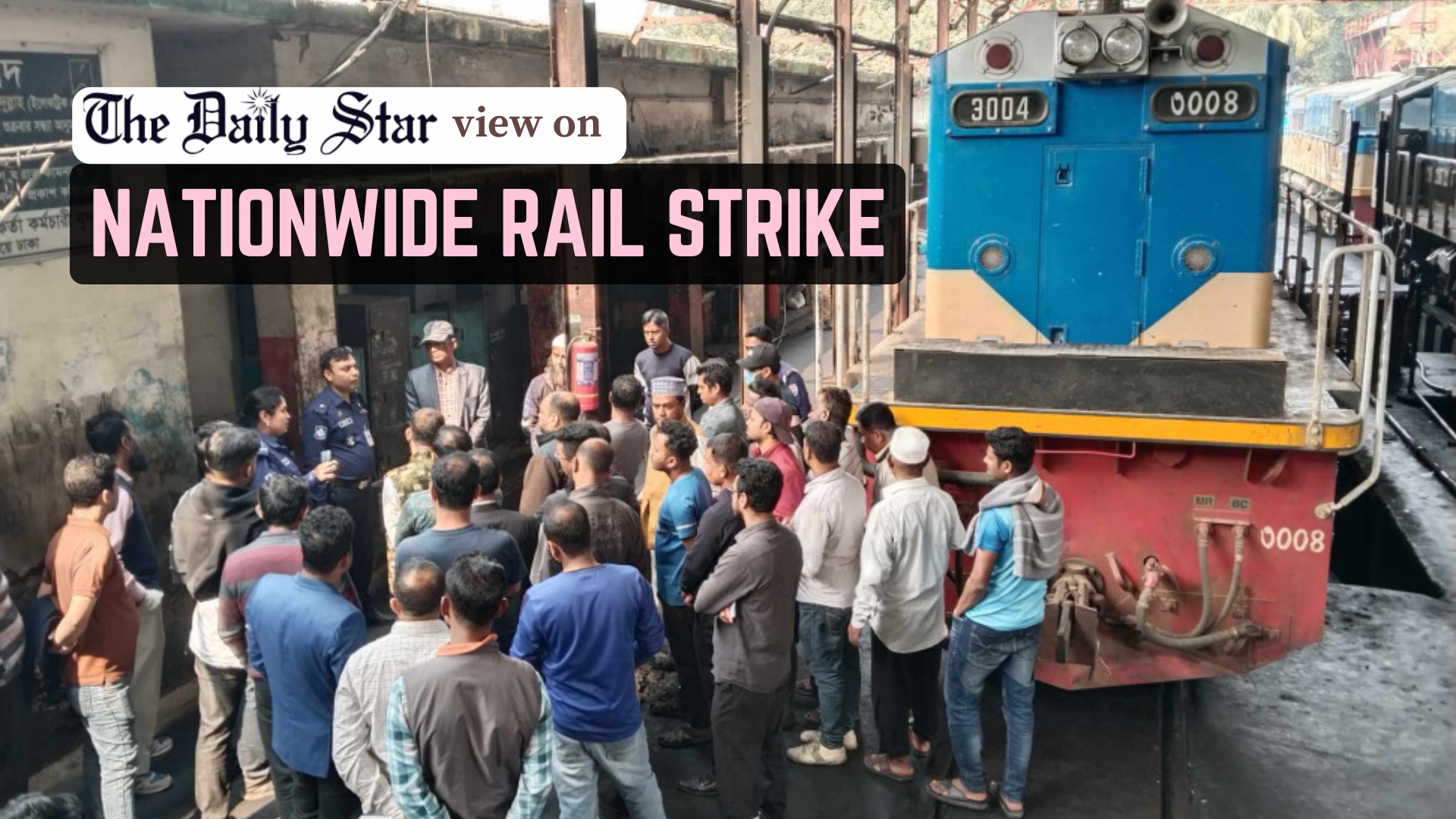Frequent protests are becoming an ordeal for citizens

Since the political changeover in Bangladesh nearly six months ago, Dhaka has become a hub of protests. Various groups have taken to the streets or laid siege to key state offices to voice their grievances and demand action. However, due to the city's unplanned development, overcrowding, and chaotic traffic system, even minor disruptions can lead to severe gridlocks. As a result, commuting has become quite an ordeal for the city residents.
On Sunday alone, three major protests were reported in Dhaka. In Mohakhali, students of Government Titumir College—demanding its upgrade to a university for weeks now—staged a hunger strike while blocking the street in front of their campus as well as the Gulshan 1 intersection. On Mirpur Road, some of the victims wounded during the July uprising protested the prolonged delay in receiving proper treatment and compensation. Meanwhile, a platform named Inquilab Mancha blocked Eidgah Road in front of Shikkha Bhaban, demanding the resignation of the home adviser for failing to prevent Awami League-linked leaders and officials from leaving the country. The result? Major parts of the city came to a standstill, with thousands, including those seeking critical services, stranded on the streets.
Given Dhaka's many overlapping problems, is it a surprise that even the slightest disruption leads to massive traffic congestions? Unfortunately, it's always ordinary citizens who are left to bear the brunt of this situation. On Sunday, for instance, an RMG worker and his wife had to walk 40 minutes carrying their two ill toddlers to a doctor's appointment, which they ultimately missed. Such stories of missed appointments, business opportunities, and personal emergencies are endless, leading to immeasurable suffering and a staggering economic cost.
We fully support the right to protest, but should it come at the expense of people's livelihoods and survival? If so, to what extent? These are questions that we must seriously consider. The notion that grievances cannot be addressed without blocking roads is a pre-uprising legacy that grew in response to the authoritarian nature of the Awami League government. Both protesters and authorities in new Bangladesh must find a way around this culture. The lack of public space within the city—as well as the lack of acceptance of alternative protest venues on the outskirts of it—is another issue that we must critically approach and address. Moreover, as the July uprising has shown, online platforms can be as powerful a medium to stage protests and trigger policy response as street mobilisation, something the protesters can consider.
All this is to say that there must be something we can do to address the endless public suffering caused by protests on the streets. Public sufferings cannot be used as a bargaining tool any longer. To change this scenario, authorities must take the first step and restore public confidence in the state's feedback mechanism, so that there are peaceful means of resolving grievances. The protesters also must give advocacy, online activism, and negotiation a chance before pouring out onto the streets. We also must find a way to accommodate protests in designated public spaces without disrupting major roads.



 For all latest news, follow The Daily Star's Google News channel.
For all latest news, follow The Daily Star's Google News channel. 

Comments